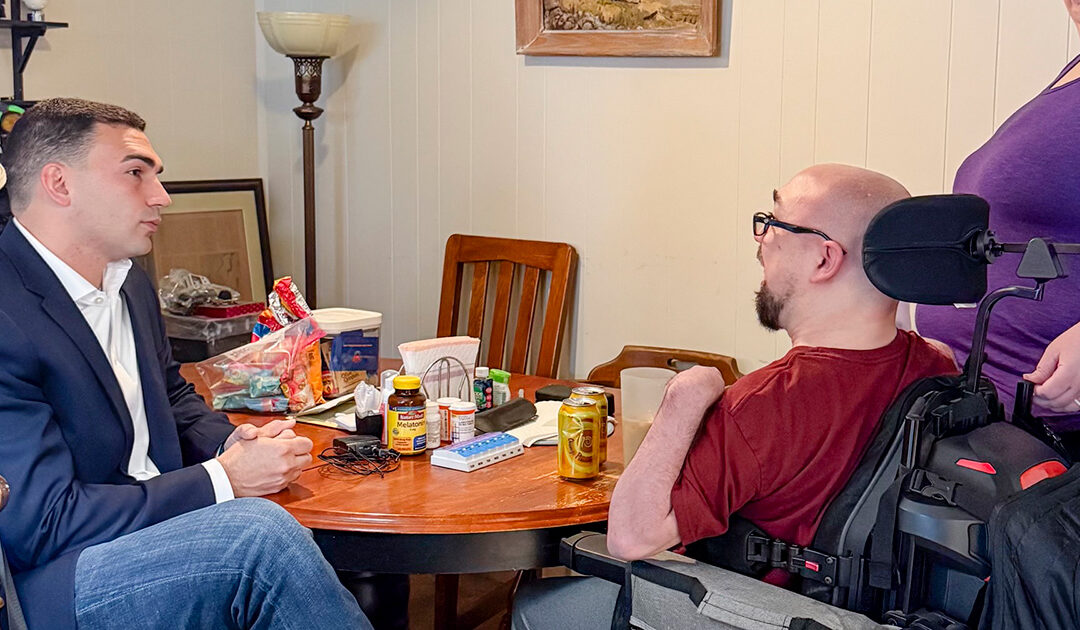Sen. Miller sits with Lynn and Brandon at their home in Allentown, PA on May 28, 2025
Allentown, PA – May 28, 2025 − Senator Nick Miller joined Lynn Weidner, a consumer-directed home care worker, and her consumer, Brandon Kingsmore to get a firsthand look at the challenges faced by Pennsylvania’s homecare work force. This comes as support continues to grow for Governor Josh Shapiro’s proposed $21 million investment in the commonwealth’s participant-directed home care program.
“As I reflect on my time today, I’m reminded of the countless home care workers like Lynn who serve with dedication, compassion, and selflessness in support of those they care for. Today, I witnessed firsthand the crucial work they provide that allows individuals like Brandon to live comfortable and independent lives,” said Senator Miller.
“This experience reinforced the urgent need to advocate for fair, competitive compensation for home care workers. I fully support the Governor’s proposed $21 million investment and urge its inclusion in the final budget. We must work together to ensure that individuals like Brandon receive the quality care they deserve and that dedicated caregivers like Lynn feel empowered, celebrated, and adequately compensated for the invaluable work they do every day.”
Direct care workers are a lifeline for older Pennsylvanians and people living with disabilities who rely on in-home support to live independently. This model empowers nearly 8,500 Community HealthChoices participants to hire and manage their own caregivers, allowing for greater autonomy and freedom. The model not only ensures that state dollars go directly to care, but it also embodies the principles of consumer control and civil rights that the disability community fought hard to secure. However, due to chronic underfunding, caregivers continue to leave the field for higher paying, less demanding jobs, making it difficult for those looking for a home caregiver to find one.
This funding, along with an additional investment in non-profit union agencies is essential to maintaining the life-sustaining jobs homecare workers and those they care for need by:
- Raising wages for 8,500 care workers, some of whom currently earn as little as $12.72 per hour.
- Funding paid time off for participant-directed caregivers—many of whom have worked for years without access to paid leave—for the first time ever.
- Ensuring equity between agency-based and participant-directed care, increasing autonomy for seniors and people with disabilities.
- Maximizing taxpayer efficiency by investing in one of the most transparent and cost-effective models of home care.
- Enhancing quality workforce rates for home care agencies that participate in joint labor-management training initiatives, engage in collective bargaining, and uphold high-quality working conditions for caregivers.

